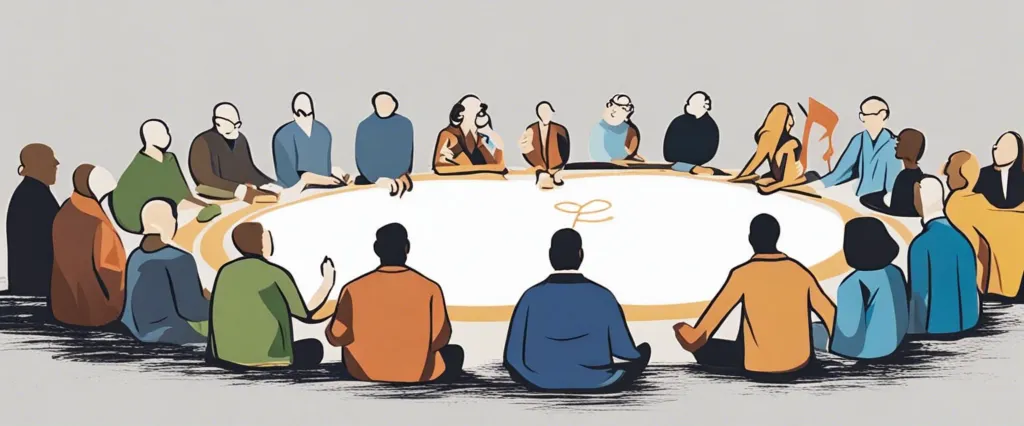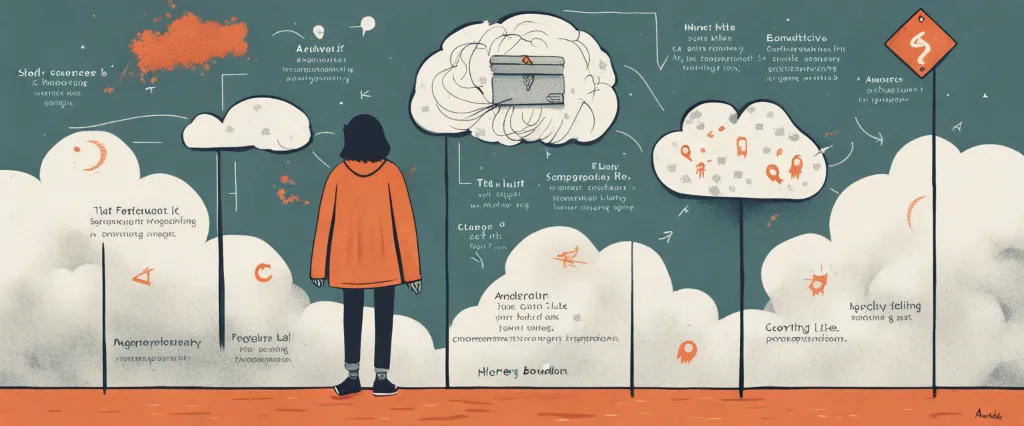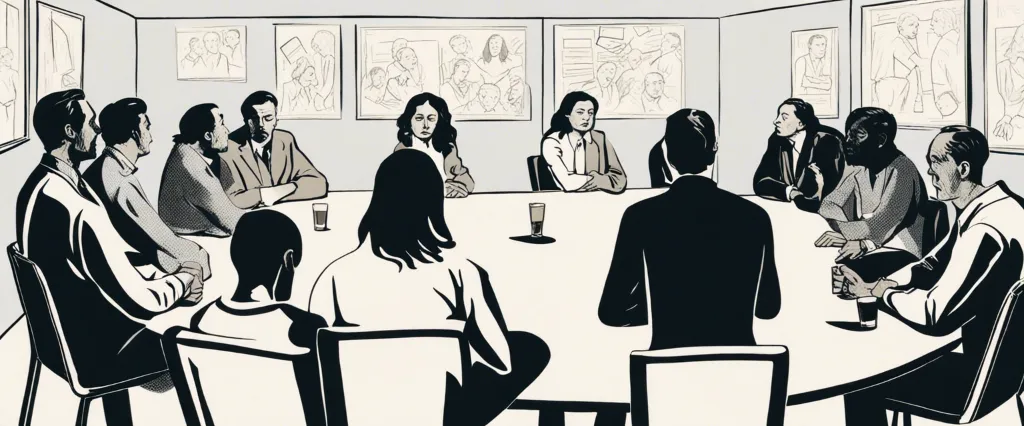——Alcoholics Anonymous by Alcoholics Anonymous & How to Stop Feeling Like Sht by Andrea Owen

In the realm of self-help literature, countless books have emerged over the years, offering guidance and support to individuals seeking personal growth and positive change. Two such books, which have garnered significant attention and impacted the lives of many, are “Alcoholics Anonymous” by Alcoholics Anonymous and “How to Stop Feeling Like Sh*t” by Andrea Owen. Although these two works may appear distinct in subject matter and approach, they share a common goal: to empower individuals and find a path to a better life. As we delve into a comparative analysis of these works, it becomes clear that despite their different perspectives and intended audiences, both books have the potential to profoundly impact readers’ lives by addressing personal struggles, fostering self-reflection, and offering tools for growth and transformation. Through an exploration of their unique characteristics and merits, we will uncover how these books embrace diverse strategies to support individuals on their journey to personal betterment.
Brief Summary of Two Books
Alcoholics Anonymous by Alcoholics Anonymous
“Alcoholics Anonymous” is a book written by the organization Alcoholics Anonymous (AA) and widely known as the “Big Book.” Published in 1939, it serves as a guidebook for individuals struggling with alcohol addiction, providing them with a path to recovery. The book aims to help alcoholics achieve sobriety through a twelve-step program.
The first part of the book includes personal stories of alcoholics in recovery, highlighting their experiences, struggles, and eventual triumphs over addiction. These stories exemplify the various forms alcoholism can take and serve as relatable narratives for readers.
The second part presents the principles and practices of AA. It outlines the twelve steps that members are encouraged to follow, including admitting powerlessness over alcohol, seeking a higher power, conducting a moral inventory, making amends, and helping others. These steps form the foundation of the AA program and are designed to promote spiritual growth, self-reflection, and personal transformation.
Furthermore, the book explores the spiritual aspect of recovery without endorsing any particular religion. It emphasizes the importance of seeking a higher power, which can be interpreted in a way that is meaningful to each individual.
“Alcoholics Anonymous” emphasizes the power of fellowship and support groups, encouraging alcoholics to attend AA meetings and connect with others who understand their struggles. The AA program emphasizes anonymity, ensuring that participants can discuss their problems openly without fear of judgment or social repercussions.
Overall, “Alcoholics Anonymous” offers a comprehensive guide to the recovery process, offering hope to those trapped in the cycle of alcohol addiction and providing them with the tools to find lasting sobriety.
How to Stop Feeling Like Sht by Andrea Owen
“How to Stop Feeling Like Sh*t” by Andrea Owen is a self-help book that aims to empower women to overcome self-destructive habits and patterns in order to live a more fulfilling life. The book draws on Owen’s personal experiences and offers relatable stories, practical advice, and actionable strategies to help readers break free from negativity, self-doubt, and self-sabotaging behaviors. It covers a wide range of topics including perfectionism, people-pleasing, comparison, negative self-talk, and avoidance. Owen encourages readers to confront their fears, set boundaries, practice self-care, and prioritize their own needs. Through a combination of reflective exercises, helpful tips, and encouraging insights, the book offers a roadmap for women to reclaim their power, build resilience, and create a life they truly love.
Comparison between Two Books

Similarities in Psychology
Both “Alcoholics Anonymous” by Alcoholics Anonymous (AA) and “How to Stop Feeling Like Shit” by Andrea Owen have psychological aspects that delve into the mindset and emotional well-being of individuals. Here are some similarities between the two books:
1. Recognizing negative patterns: Both books emphasize the importance of self-awareness and recognizing negative patterns of behavior in order to bring about positive change. AA focuses on addressing alcohol addiction, while Owen’s book covers various self-destructive behaviors.
2. Coping mechanisms and self-reflection: Both books provide guidance on developing healthy coping mechanisms and practicing self-reflection. AA emphasizes the use of the Twelve Steps, which involve introspection, admitting faults, and making amends. Owen’s book explores strategies for self-compassion, setting boundaries, and identifying triggers for negative emotions.
3. Support systems: Both books emphasize the need for a support system. AA promotes the importance of attending group meetings and finding a sponsor to provide guidance and accountability. Owen’s book encourages seeking support from friends, family, or therapists, as well as creating boundaries with toxic relationships.
4. Mindfulness and staying present: Both books advocate for the practice of mindfulness and staying present in the moment. AA promotes the concept of “one day at a time,” focusing on the present moment rather than dwelling on the past or worrying about the future. Owen’s book includes mindfulness exercises and encourages readers to avoid escapism and instead face their emotions head-on.
5. Belief in personal growth and change: Both books convey the belief that individuals have the ability to grow and change. AA encourages individuals to have faith in a higher power and to trust in the process of recovery. Owen’s book instills the belief that anyone can break free from self-destructive patterns and adopt healthier behaviors.
6. Empowerment and taking responsibility: Both books emphasize the importance of taking responsibility for one’s actions and choices. AA encourages individuals to take ownership of their past mistakes and actively engage in the recovery process. Owen’s book emphasizes the importance of personal accountability and empowering oneself to make positive changes.
7. Emotional well-being: Both books address the significance of emotional well-being. AA recognizes the role of emotional health in addiction recovery, encouraging individuals to address underlying emotional issues. Owen’s book focuses on self-compassion, emotional resilience, and understanding one’s emotional triggers.
8. Non-judgmental and supportive approach: Both books adopt a non-judgmental and supportive approach towards individuals seeking help. AA provides a safe and non-critical environment for individuals to share their experiences and receive support. Owen’s book offers practical advice and exercises with a compassionate tone, aimed at helping readers overcome self-destructive behaviors.
Although AA specifically focuses on alcohol addiction recovery and Owen’s book covers a wider range of self-destructive behaviors, both texts demonstrate the importance of addressing psychological aspects for personal growth, well-being, and breaking unhealthy patterns of behavior.
Divergences in Psychology
Alcoholics Anonymous, commonly referred to as the “Big Book,” is a seminal text in the field of addiction recovery. It was published by Alcoholics Anonymous World Services, Inc. and offers a comprehensive program for individuals struggling with alcoholism. On the other hand, How to Stop Feeling Like Sh*t by Andrea Owen is a self-help book focused on empowering women to overcome self-destructive behavior and create a more fulfilling life. Although both books tackle issues related to personal struggles and self-improvement, there are distinct divergences in their approach to psychology.
One noticeable divergence in the psychological approach of these books lies in their theoretical foundations. Alcoholics Anonymous (AA) embraces a spiritual and moral framework as an essential component of recovery. It presents addiction as both a physical allergy and a mental obsession, emphasizing a reliance on a higher power to achieve lasting sobriety. AA promotes the Twelve Step program, where individuals admit powerlessness over alcohol and turn their will and lives over to a “higher power.” This spiritual element is central to the therapeutic process in Alcoholics Anonymous.
In contrast, Andrea Owen’s How to Stop Feeling Like Sh*t does not explicitly emphasize spirituality or rely on a higher power as a means of overcoming personal struggles. Instead, Owen’s book adopts a predominantly cognitive-behavioral approach, drawing on principles from psychology. She incorporates various practical tools, techniques, and exercises to help readers identify and challenge self-destructive patterns of thinking and behavior. Owen focuses on empowering individuals to take responsibility for their own growth and well-being, highlighting the importance of self-awareness and self-compassion.
Another notable divergence is the scope of their intended audiences. Alcoholics Anonymous primarily targets individuals struggling specifically with alcohol addiction. The program is designed to address the specific challenges and patterns associated with alcoholism, providing a supportive community of peers who understand the complexities of addiction. AA recognizes the significance of shared experiences and camaraderie in the recovery journey.
In contrast, How to Stop Feeling Like Sh*t has a broader target audience and does not exclusively cater to those with addiction issues. Andrea Owen’s book aims to help women across various life domains overcome self-destructive patterns, whether related to relationships, career, self-esteem, or other aspects of personal growth. It speaks to a wider range of readers who may be seeking personal development and emotional well-being, rather than solely focusing on addiction recovery.
While both these books touch on psychological concepts and strategies, they offer distinct approaches to understanding and addressing personal struggles. Alcoholics Anonymous, with its emphasis on spirituality and the Twelve Step program, provides a structured framework for recovery from alcohol addiction. How to Stop Feeling Like Sh*t, on the other hand, draws on cognitive-behavioral principles and encourages readers to take personal responsibility for self-improvement. These differences make each book uniquely suited to address specific areas of personal growth, recovery, and overall psychological well-being.

Conclusion
It ultimately depends on what you are looking for in a book.
If you are struggling with alcoholism or have a loved one who is dealing with addiction, “Alcoholics Anonymous” by Alcoholics Anonymous can be highly recommended. It is a classic and well-known book that offers a 12-step program to help individuals recover from alcoholism. This book serves as a guide to understanding the disease of alcoholism and provides support and encouragement for those seeking help.
On the other hand, “How to Stop Feeling Like Sh*t” by Andrea Owen is more focused on general self-improvement and personal growth. This book explores various self-sabotaging behaviors and offers practical strategies to overcome them. It is targeted at women in particular and addresses issues such as perfectionism, negative self-talk, and comparison.
In summary, if you or someone you know is struggling specifically with alcohol addiction, “Alcoholics Anonymous” would be the more appropriate choice. However, if you are seeking a book to improve your overall mindset and personal development, “How to Stop Feeling Like Sh*t” by Andrea Owen might be more beneficial.


